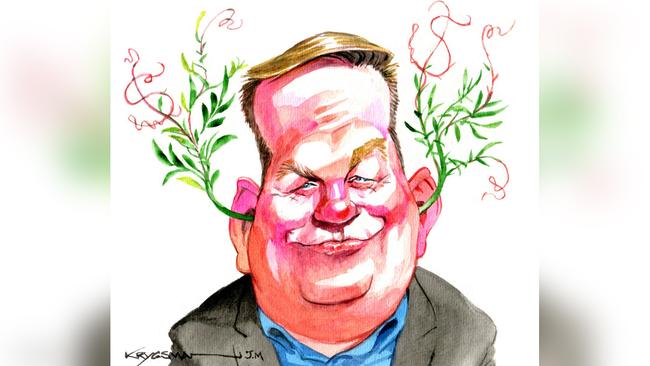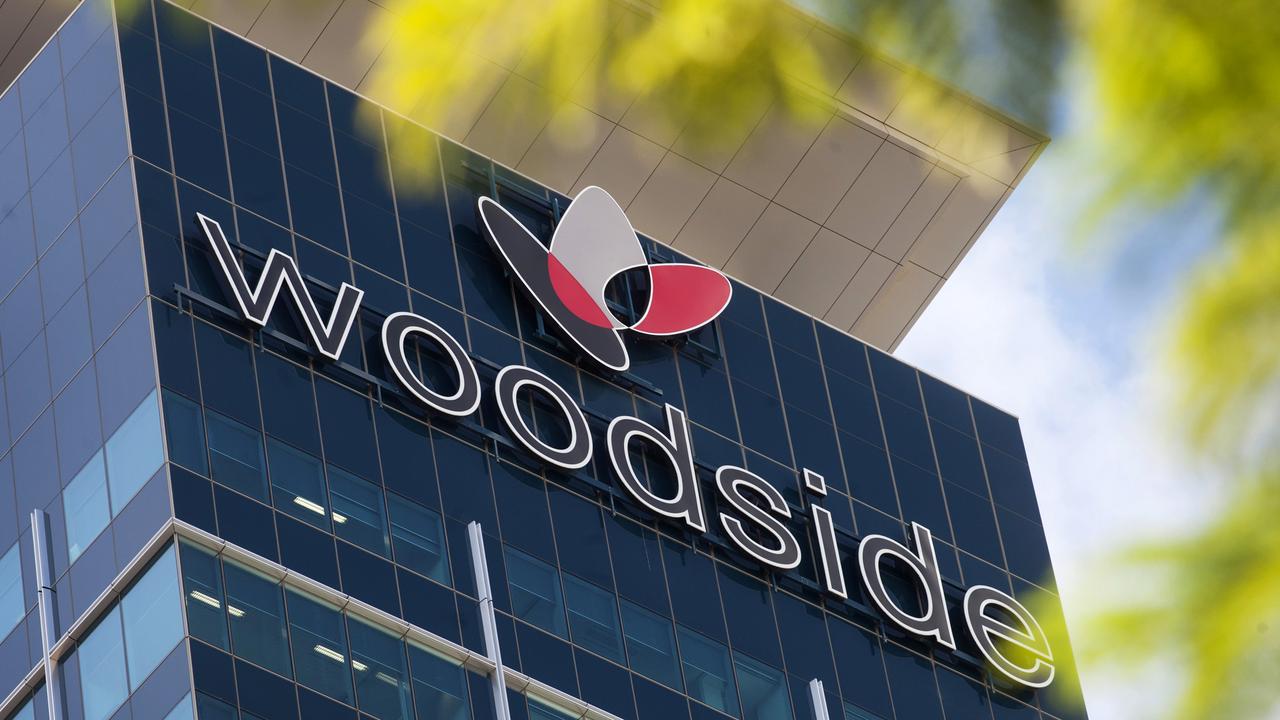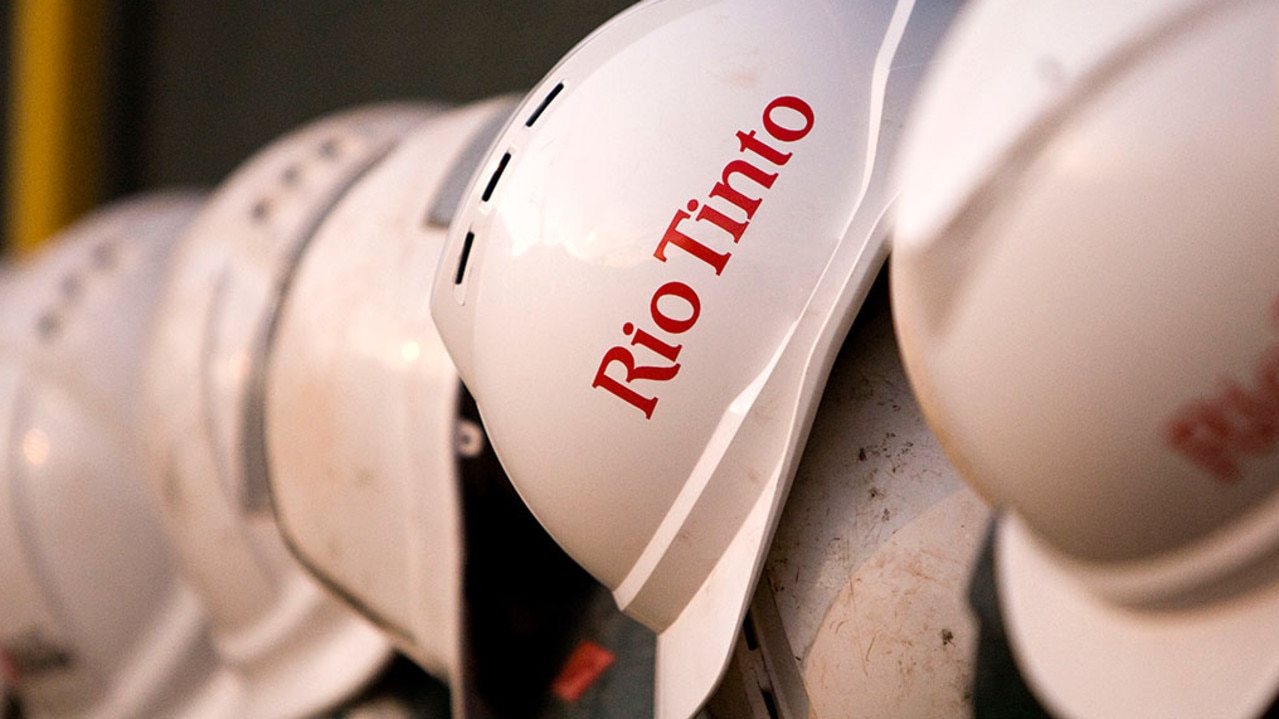
When you are riding a price-earnings multiple expansion like Matt Comyn at CBA, maybe you get to selectively use numbers to distort facts – which is what he continues to do with his albeit strong business banking franchise.
The bank claims business leadership, but this is in number of loans, terminals and other metrics not the traditional loan value, as measured by APRA, which has NAB firmly in the chair.
The CBA price-earnings multiple, for no apparent reason, has increased from 16 to 23 times in the past five years and with the stock price at $135.27, Comyn’s bank shareholding is worth $12.9m paying $442,482 a year in dividends and he has another 94,000 shares worth $12.7m in the wings.
That’s before his $8.9m pay cheque but he is still gilding the lily when he claims to be the biggest business bank.
APRA figures show NAB in the lead still at 21.9 per cent, against CBA at 18.4 per cent. And while CBA was happy to use the regulator figures for its biggest business deposit claim, its best business bank boast is actually based on number of customers (not value) which have increased from 800,000 to 1.3 million, best net promoter score (except last month when Westpac won) and most merchant terminals.
Comyn is leaving the rest of the industry behind in retail banking, where self-generated home loans stand at 66 per cent of total loans, up from 59 per cent, and clear market share leads across the board.
Mortgage brokers account for 73.5 per cent of total home loans, which is good for them – some banks like Macquarie rely totally on external sales. But overall not so good for the banks which, by definition, don’t own the customers like Comyn does.
CBA under Mike Vacy-Lyle is leading the fight to win NAB’s business bank crown but Andy Irvine is holding on strongly – and, in the process, small business is the winner.
Silva lining
In a market in which companies are increasingly questioning the value they receive from voluntary carbon commitments, Raf Wood’s Silva Capital Origination fund has done well to get backing from three big names in Qantas, Rio and BHP.
All three face mandatory long-term carbon reductions under the government’s safeguards policy, which is an even better selling point because they actually need to get carbon credits to meet government demands and stay in business. They have invested a combined $80m in Silva’s first $250m fund.
Air New Zealand, Fed Ex and others around the world were looking to boost their social licence to operate, boasting short-term climate commitments they are now walking away from. Questions over offset integrity and greenwashing scares have emerged elsewhere.
Carbon neutrality for some has gone from a virtue to a potential black mark, which is why you will hear plenty of talk about quality projects, and for others it is a convenient excuse to do nothing.
There are obvious differences between voluntary and compliance markets, and Silva Capital is playing in the latter, which, long term, faces quality supply shortages and increasing demand.
Short term, the Australian market is in oversupply thanks to former energy minister Angus Taylor’s decision three years to ease selected farmer concerns, flooding the market by allowing long carbon credit owners to cash in high-priced credits and allowing them to buy back at lower prices. This gift to some farmers will suppress prices for two more years, which is when the Silva fund hopes its environmental planting in some 9000 hectares through allied group Covalent Land will start to produce measurable carbon.

The mixed-species trees by then will have grown. Covalent will plant well-spaced trees on two soon to be wholly owned properties in northern NSW and southern Queensland, with 30 per cent-plus canopy cover.
The selling point is new plantings in land reforestation projects integrated with sustainable agriculture.
Wood sits on the Covalent board, along with Justin Glass and James Turnbull.
His Silva partner is Roc Partners, a former Macquarie fund specialising in private capital and carbon which has teamed up with Wood’s C6 Investments to run Silva Capital
The plantings also aim to benefit from increased biodiversity, which ticks all the boxes in the model showcased by Nigel Sharp’s Tiverton Agriculture.
The fund for land purchase is not short of participants so the battle is to attract investors through quality, which Wood has clearly attracted.
ACCUs (Australian carbon credit units), which tick all the boxes, sell at around $60 a unit today against $33 for low-grade land filled gas units, and all in all Silva is promised a 12 per cent internal rate of return.
Some, such as Woodside, have invested directly in their own land, and others like Shell four years ago acquired carbon developer Select Carbon.
Investors in Silva Capital will be able to claim ownership of the carbon credits generated, so if you own 10 per cent of the fund you get 10 per cent of the ACCUs.
Market machinations
The ASX regulator is under fire from some quarters, with ASIC accusing it of misleading the market – which, on its own, is a stunning allegation given the market is built on continuous disclosure obligations.
As noted earlier, ASIC had talked up its investigation so it needed a result, even if the case comes some three years after the claimed breaches, which makes you wonder what the corporate cop has been doing given the ASX comes under its wings and the ASX technology snafu is by now sadly long gone but well known.
As this plays out, ASX is also suffering from an obvious loss of listed talent, and a recent note from Herbert Smith Freehills partner Rodd Levy has suggested maybe some flexibility in the rules may help. This may not be a time for the ASX to be walking on the wild side, given its other issues.
There are rules and rules. Market disclosure is not negotiable but voting rights are a different issue, and just maybe the ASX should look at recent changes to the UK bourse. These include dropping shareholder votes on related party transactions; giving big shareholders such as super funds special voting rights; and a switch to more disclosure-based entry criteria for new IPOs.
The ASX figures that at $2.5 trillion, its market value is well ahead of the $66bn in the PE market, but the fact is private capital has provided another and growing source of competition, which means the ASX has some thinking to do. It claims net new capital since July 2021 totals $138bn but this includes $96bn from the BHP reunification.
Levy figures that over the past three years, companies with a market value of more than $175bn have left the bourse including Alumina, Blackmores, Boral, CIMIC, Crown, Newcrest, Sydney Airport, AusNet, CSR and Oz Minerals.
Some big hitters there and in their place over the same period totalling $70bn in new companies including Arcadium Lithium, APM Human Services, Block, GQG Partners, Guzman Y Gomez, Judo Capital, Light & Wonder, Newmont, Pacific Edge and PEXA.
Private capital is attractive because it comes with lesser obligations than public exposure, and global public markets have also become more competitive.
Read related topics:Commonwealth Bank Of Australia



